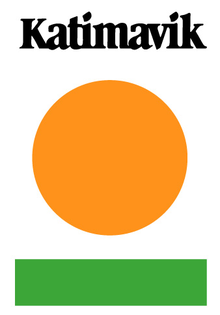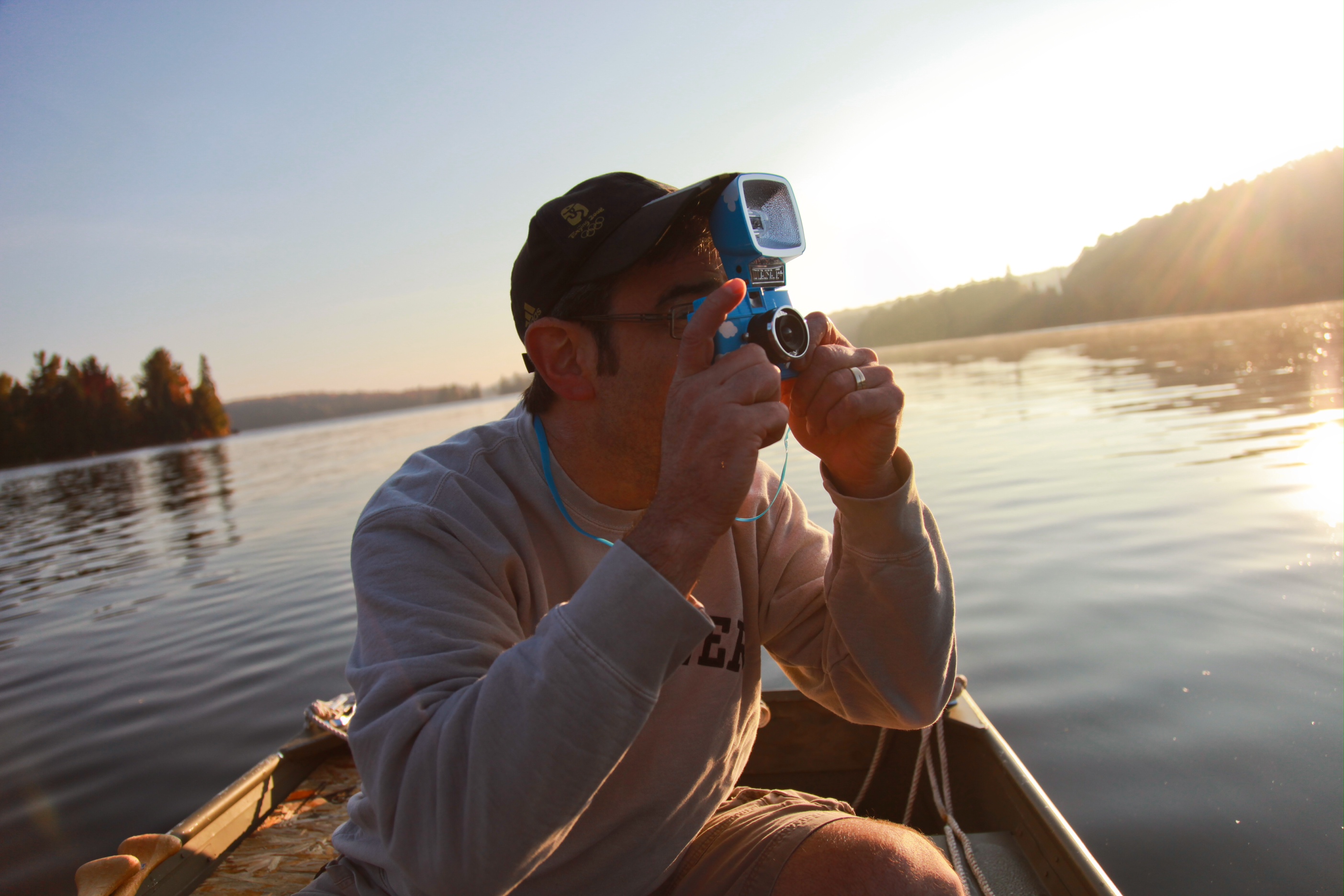 Wednesday, April 18, 2012
Wednesday, April 18, 2012  This is the unedited, un-cut version of this article, which appeared this morning in the Globe and Mail.
This is the unedited, un-cut version of this article, which appeared this morning in the Globe and Mail.
Katimavik
By: Adam van Koeverden
April 10th 2012
My parents attended Guelph University over the same four year period in the 1970s. They drank beer in the same campus bars, attended Guelph Gryphons football games; they might have even taken an elective together, who knows. But they didn’t meet there. They made the same decision upon graduating from Guelph, to go work as group leaders with this new youth initiative called Katimavik. In its very first year, 1977, my parents attended a Katimavik orientation in Lac St. Joseph, Quebec. They met briefly, and my mom went off to Baie-Comeau, Quebec and then to Yellowknife, and my dad went to work in the small town of Arundel, Quebec, close to Mt. Tremblant. Over the next year my parents worked independently, a whole country apart, while driven by a shared commitment: to contribute to the youth of Canada.
They worked for Katimavik on and off for 5 years, in that time they also got married and had me, their first of two sons. I’m told that makes me a “Katimababy”. By 1982, the year of my birth, my dad was working for Katimavik full time in Toronto, as the financial manager for Katimavik’s Ontario operations.
My mom used to wear an old white Katimavik sweat shirt while she gardened. I remember asking her when I was very young, what the orange circle with the green line under it meant. She told me that Katimavik means “meeting place” in Inuktitut, and that she worked there, with kids, way up north after University. So my mom and dad met at “meeting place”. The serendipity was lost on me at the time; I was six and probably covered in mud and poison ivy at the time. I owe Katimavik my life in the sense that it brought my parents together, but they didn’t only find each other in Lac St. Joseph, they started on a journey to find themselves, too.
I read last week that as government funded youth initiatives go, Katimavik is too costly and that it’s not worth saving. That actually it was a really easy decision to scrap it. I spent a few hours on the phone with my parents, as they recounted their experiences there. My mom remembered the short Yellowknife days, and how she felt safer with a 12 year old Inuit boy in the woods while playing a survival game, than she could ever imagine feeling with any adult from the city in the same situation. She feels that she learned as much from those kids as she taught them. She studied horticulture at Guelph, and talks about the differences in the plant culture in the far north as if she spent her entire childhood living in the Northwest Territories. My mom has spent the last 20 years or so working as a community co-ordinator in the non-profit housing industry. My dad remembered being thrown headfirst into a leadership role in Arundel, accepting that responsibility and realizing his potential as a leader and manager straight away. My dad has had a variety of careers since Katimavik; teaching management at Ryerson and George Brown, in Aboriginal business development in Ontario and with the Saskatchewan Gaming Corporation, and as the manager of Ontario’s Tourism Education Council. To suggest that Katimavik was formative for my parents, that Katimavik guided them towards their careers based on their respective passions, interests and strengths, might be understating the case a little.
Like many young Canadians, there was a time when I felt totally directionless. I didn’t know where to spend my energy and I was unaware of any inherent skills lying dormant in my bones. In 1995 I found a sport, which has become my job, and I’m really happy it did. But what if I didn’t have a Canoe club in my town to literally wander into 17 years ago? A lot of kids don’t, so those questions go unanswered for them.
Young people today are facing a crisis of relevance. It’s not obvious to every kid where they’ll fit and what they have to offer society. It’s these types of experiences; empowering work, structured and meaningful educational activities, that have provided over 30,000 Canadians with the understanding that fulfillment doesn’t come from what we “want to have”, but from what we “have to give”.
There over 1000 Canadian kids, whose questions were going to be answered this summer. They had already signed up to work with Katimavik, and were slated to leave this July. More than 50 Canadian communities, some desperate for this kind of help, already had 35 hours/week work plans laid out for them. Katimavik wasn’t phased out, it was cancelled abruptly at the expense of Canadian youth and the communities they were preparing to serve.
The dual-value of this kind of community service cannot be overstated; simply put it is purposefully engaged youth, serving our communities. That seems like well-spent taxpayer money to me. I’m not an expert on government budgets and the inner financial workings of our nation. Thankfully, Canada has some of those experts, and over the course of 2009-10 some of them did a very thorough study on Katimavik. The study found that “the federal government’s financial involvement in this type of initiative is [therefore] deemed to be justified.” Additionally, it stated that “the objectives of the Katimavik program support and mirror the government’s priorities” and that “Katimavik is a good fit with the Government of Canada’s youth programming.”
As any good study should, it has some suggestions for a strategy to increase efficiency and to continue to decrease the cost per participant, since that cost had a descending trend throughout the period of the study. Katimavik’s reviews were pretty glowing. It never once suggested that it was worth scrapping.
I recycle, and I think that when something good and functional is a little broken, you should fix it. That’s what the study was for, and that’s what it found, just a little room for improvement, here and there.
I believe that the first priority of a good government should be the same as Katimavik’s first priority; service. It seems to me that the decision to toss Katimavik down the drain had nothing to do with service. In fact, that decision represents a neglect of its duty to serve our communities, the youth who live there, and the young people anxious to travel to them to work, learn and serve.
The decision to scrap Katimavik was an entirely politically motivated decision. So when will politics in this country be devoted to service, instead of just, well, politics?

















